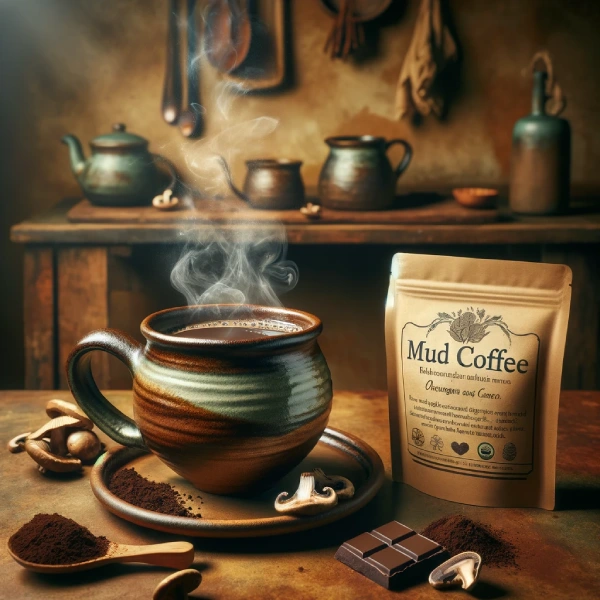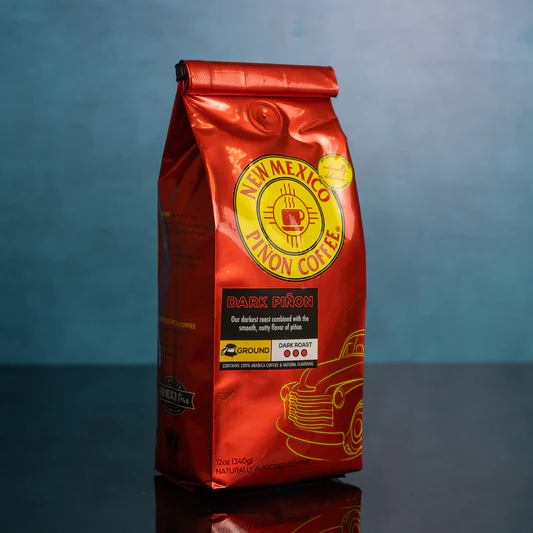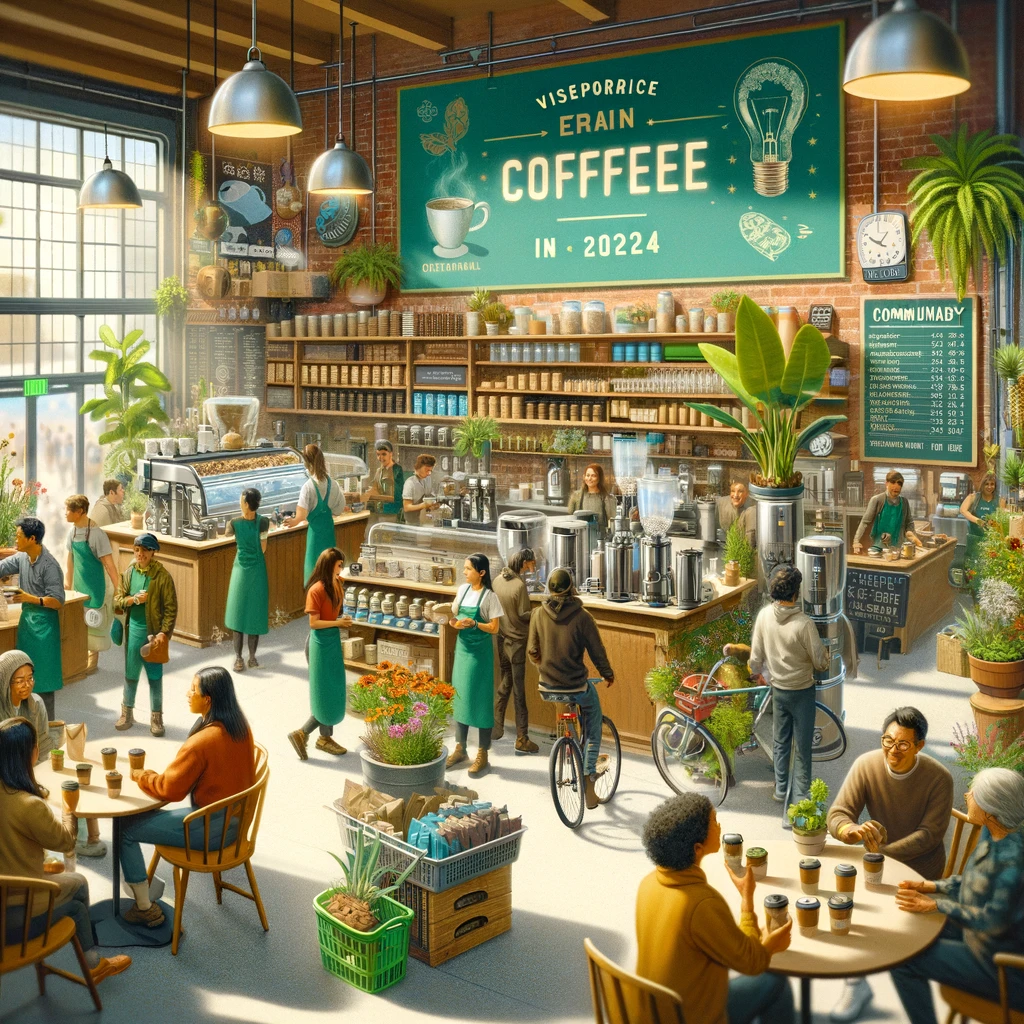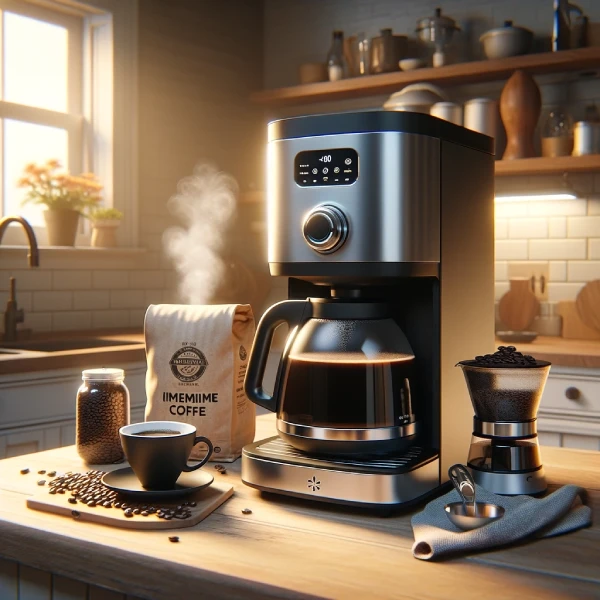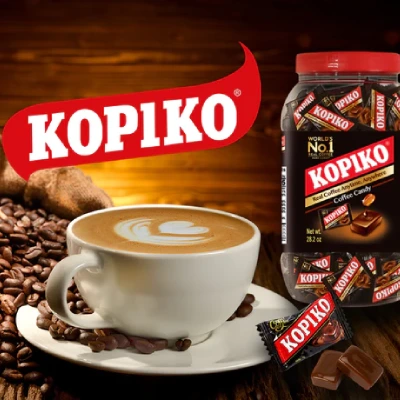Introduction
The global coffee industry has always been a dynamic and evolving market, with trends and consumer preferences constantly shifting. As we step into 2023, the coffee industry continues to expand and innovate, driven by changing consumer behaviors and technological advancements.
This article delves into the latest statistics and trends shaping the world's top coffee brands in 2023. With a focus on data-driven insights, we aim to provide a comprehensive overview of the current state and future prospects of these leading coffee brands.
Global Coffee Market Overview
The Current State of the Coffee Industry
- Global Market Value: The global coffee market is projected to grow from $61.45 billion in 2022 to $66.13 billion in 2023, marking a compound annual growth rate (CAGR) of 7.6% (GlobeNewswire).
- Leading Coffee Producing Countries: Brazil remains the largest coffee producer globally, followed by Vietnam and Colombia.
- Top Consuming Countries: The United States leads in coffee consumption, followed by European countries like Germany and Italy.
Consumer Preferences and Trends
- Rising Popularity of Cold Brew Coffee: Cold brew coffee continues to gain popularity, aligning with shifting consumer behaviors (NielsenIQ).
- Preference for Specialty Coffee: There's a growing trend towards specialty coffee, with consumers seeking unique flavors and high-quality beans.
- Sustainability Concerns: Consumers are increasingly favoring brands that demonstrate a commitment to sustainability and ethical sourcing.

Photo by cottonbro studio from Pexels
Top Coffee Brands: Market Share and Growth
Leading Brands by Market Share
- Starbucks: As of 2023, Starbucks holds a significant portion of the market share in the global coffee industry.
- Nestlé (Nescafé): Nestlé, with its popular brand Nescafé, continues to be a major player in the coffee market.
- JAB Holding Company: This company owns several popular brands, including Keurig, Peet's Coffee, and Caribou Coffee.
Growth and Expansion Strategies
- Starbucks' Expansion in Asia: Starbucks has been focusing on expanding its presence in Asian markets, particularly in China.
- Nestlé's Innovation in Coffee Products: Nestlé continues to innovate in coffee products, including introducing new flavors and sustainable packaging.
- JAB's Acquisition Strategy: JAB Holding Company has been growing through strategic acquisitions of smaller coffee brands and chains.
Consumer Behavior and Preferences
Shifts in Coffee Consumption Patterns
- Increase in Home Consumption: Due to the pandemic, there has been a significant increase in coffee consumption at home.
- Growth of Online Coffee Sales: Online sales of coffee have surged, with consumers preferring the convenience of home delivery.
- Preference for Single-Serve Coffee: There's a growing preference for single-serve coffee options, like Nespresso pods and Keurig K-Cups.
Impact of Technology on Coffee Consumption
- Rise of Coffee Apps: Mobile apps for ordering coffee, like the Starbucks app, have become increasingly popular.
- Innovations in Coffee Machines: Technological advancements in coffee machines are enhancing the home coffee-making experience.
Marketing Strategies and Consumer Engagement of Top Coffee Brands
Marketing Strategies of Leading Coffee Brands
Digital Marketing and Social Media Presence
- Starbucks' Social Media Strategy: Starbucks has effectively utilized social media platforms, with a strong presence on Instagram, Twitter, and Facebook. Their strategy includes engaging content, interactive campaigns, and a focus on highlighting their brand values.
- Nestlé's Digital Campaigns: Nestlé has been leveraging digital marketing to reach a broader audience. Their campaigns often involve influencer partnerships and digital ads that emphasize the quality and variety of their coffee products.
- JAB Holding's Online Presence: Brands under JAB Holding, like Peet's Coffee, have been focusing on building a robust online presence, with targeted social media campaigns and digital storytelling.
Sustainability and Ethical Sourcing in Marketing
- Sustainability Campaigns: Top brands like Starbucks and Nestlé have been incorporating sustainability into their marketing strategies, emphasizing their commitment to ethical sourcing and environmental responsibility.
- Consumer Engagement on Sustainability: These brands engage consumers through initiatives like recycling programs, sustainable packaging, and promoting fair trade practices.
Innovation in Product Offerings
- Seasonal and Limited-Edition Products: Starbucks is known for its seasonal offerings, like the Pumpkin Spice Latte, which create buzz and drive sales during specific times of the year.
- Nestlé's Product Diversification: Nestlé has been expanding its product range, introducing new flavors and coffee forms to cater to diverse consumer preferences.
Consumer Engagement and Brand Loyalty
Building Brand Loyalty
- Loyalty Programs: Starbucks' loyalty program is a key strategy in retaining customers. Members earn rewards and discounts, encouraging repeat purchases.
- Personalized Customer Experience: Brands are increasingly focusing on personalizing the customer experience, using data analytics to offer tailored recommendations and promotions.
Customer Experience and Service
- Innovative Store Designs: Starbucks and other top brands invest in innovative and comfortable store designs, enhancing the overall customer experience.
- Efficient Service Models: Quick service and convenience are priorities, with brands adopting models like mobile ordering and drive-thru services.
The Role of Technology in Coffee Brand Marketing
Mobile Apps and Online Ordering
- Starbucks Mobile App: The Starbucks app is a prime example of how technology can enhance customer engagement. It offers mobile ordering, payment, and rewards tracking, making it convenient for customers to interact with the brand.
- E-commerce Platforms: Online sales platforms have become crucial for coffee brands, allowing them to reach customers beyond physical stores.
Data-Driven Marketing
- Leveraging Customer Data: Brands use customer data to understand preferences and buying patterns, enabling them to tailor their marketing strategies effectively.
- Targeted Advertising: Data analytics are used for targeted advertising, ensuring that marketing efforts reach the most relevant audience.
Future Outlook and Challenges for Top Coffee Brands
Future Trends and Projections in the Coffee Industry
Market Growth and Consumer Demand
- Projected Market Growth: The global coffee market is expected to continue its growth trajectory, with a forecasted expansion of $1.37 billion from 2020 to 2025, primarily driven by North America (Joe's Garage Coffee).
- Per Capita Coffee Consumption: In 2023, the average volume of coffee consumption per person in the United States is projected to be around 2.97kg (Statista).
Emerging Coffee Trends
- Cold Brew Coffee: The popularity of cold brew coffee is expected to continue rising, aligning with consumer preferences for unique and convenient coffee experiences (NielsenIQ).
- Sustainable and Ethical Practices: Sustainability and ethical sourcing will remain key factors in consumer decision-making, influencing the strategies of top coffee brands.
Technological Innovations
- Advancements in Coffee Brewing Technology: Technological innovations in brewing equipment and methods are anticipated to enhance the coffee drinking experience.
- AI and Data Analytics: The use of AI and data analytics in understanding consumer behavior and personalizing offerings is expected to grow.
Potential Challenges and Strategies for Adaptation
Economic and Environmental Challenges
- Inflation and Economic Uncertainty: Economic challenges, including inflation, may impact consumer spending on coffee products (National Coffee Association).
- Climate Change Impact: Climate change poses a significant threat to coffee production, necessitating adaptive strategies by coffee brands.
Adapting to Changing Consumer Behaviors
- Shift to E-commerce: The shift towards online shopping and e-commerce will require coffee brands to strengthen their online presence and delivery systems.
- Health and Wellness Trends: As health and wellness trends continue to influence consumer choices, coffee brands may need to adapt by offering healthier options and transparent ingredient sourcing.
Conclusion
As we look towards the future, the coffee industry is poised for continued growth and innovation. Top coffee brands will need to navigate a landscape marked by evolving consumer preferences, technological advancements, and global challenges.
By embracing sustainability, adapting to digital trends, and focusing on consumer engagement, these brands can continue to thrive in the dynamic world of coffee.
Frequently Asked Questions
-
What is the projected market growth for the coffee industry?
- The global coffee market is expected to expand by $1.37 billion from 2020 to 2025.
-
Which coffee trend is gaining popularity in 2023?
- Cold brew coffee is gaining significant popularity.
-
How is climate change affecting the coffee industry?
- Climate change poses challenges to coffee production, requiring adaptive strategies from coffee brands.
-
What is the average coffee consumption per person in the US in 2023?
- Approximately 2.97kg per person.
-
How are coffee brands adapting to economic challenges?
- Brands are focusing on digital marketing and e-commerce to adapt to economic uncertainties.
-
What role does sustainability play in the coffee industry?
- Sustainability and ethical sourcing are key factors influencing consumer choices and brand strategies.
-
How is technology impacting the coffee industry?
- Technological innovations in brewing and AI-driven consumer insights are shaping the industry.
-
What are the health and wellness trends in coffee consumption?
- There is a growing preference for healthier options and transparent ingredient sourcing.
-
How important is e-commerce for coffee brands?
- E-commerce is crucial for reaching consumers beyond physical stores and adapting to online shopping trends.
-
What strategies are coffee brands using to build brand loyalty?
- Strategies include loyalty programs, personalized experiences, and focusing on customer service and engagement.




